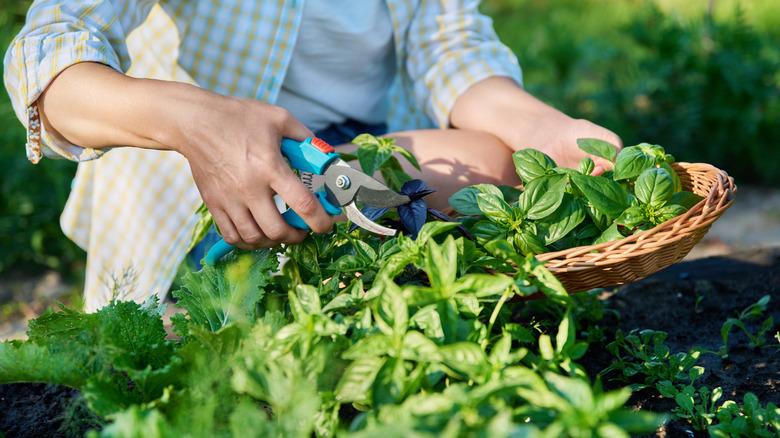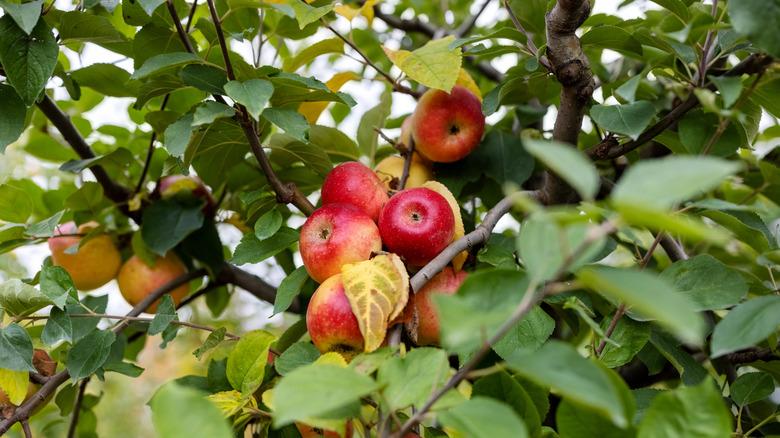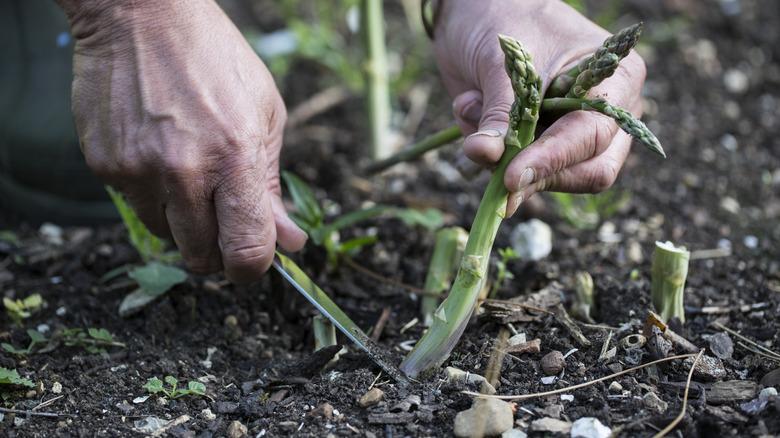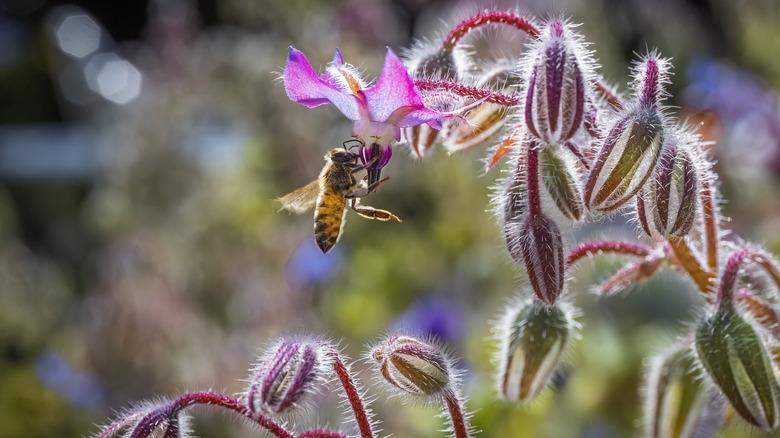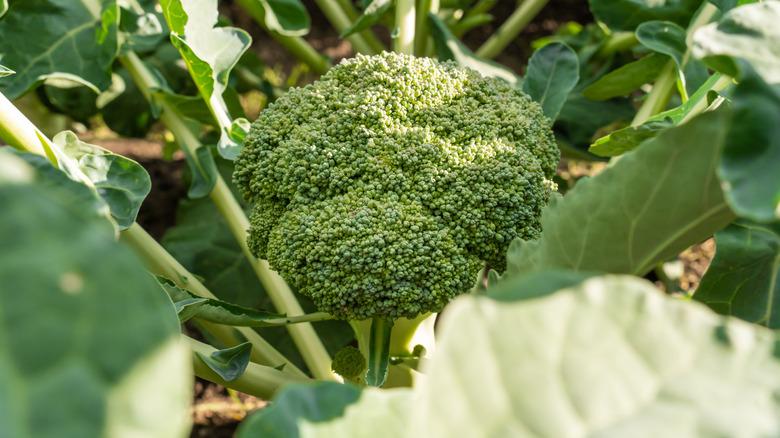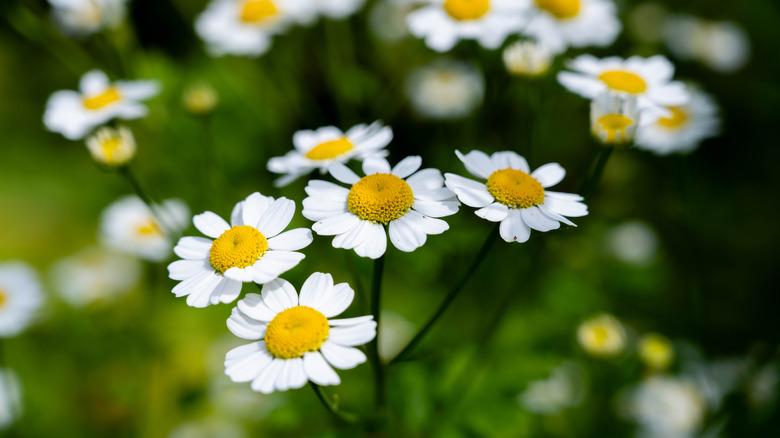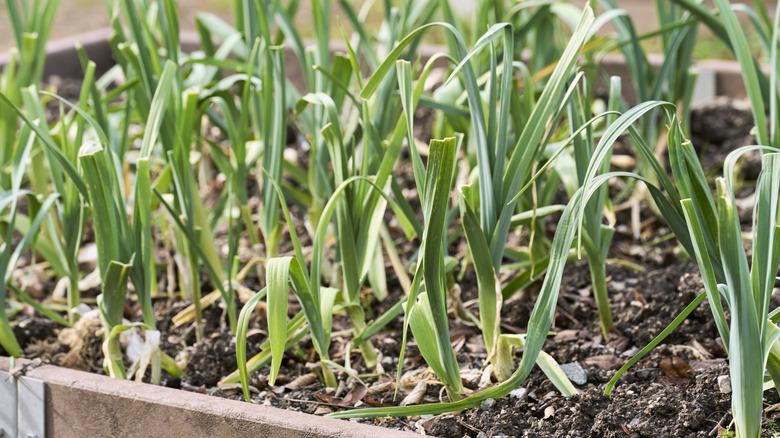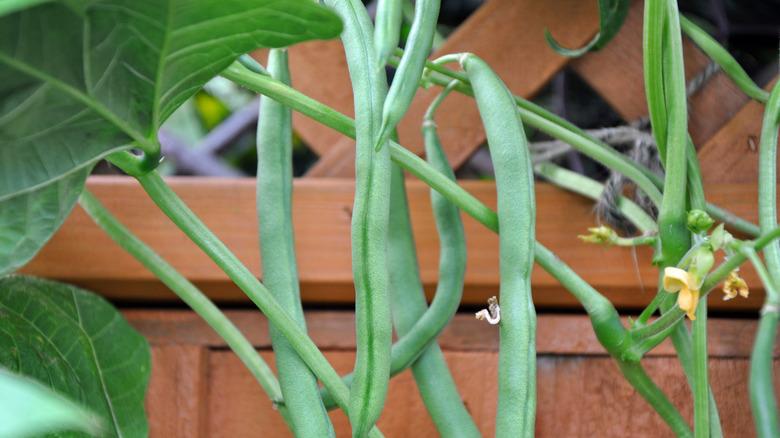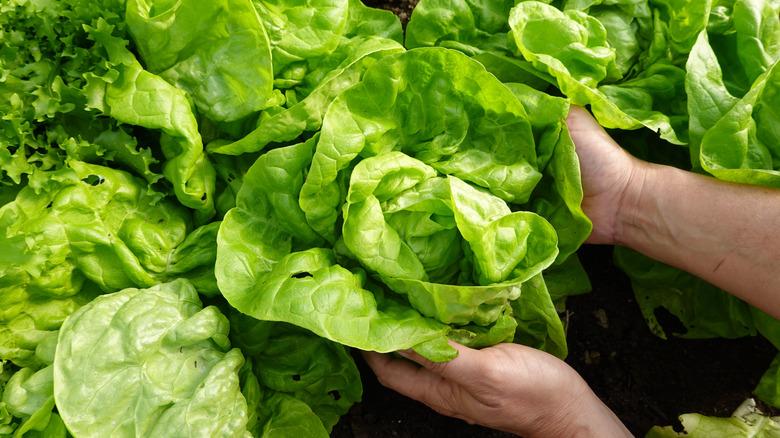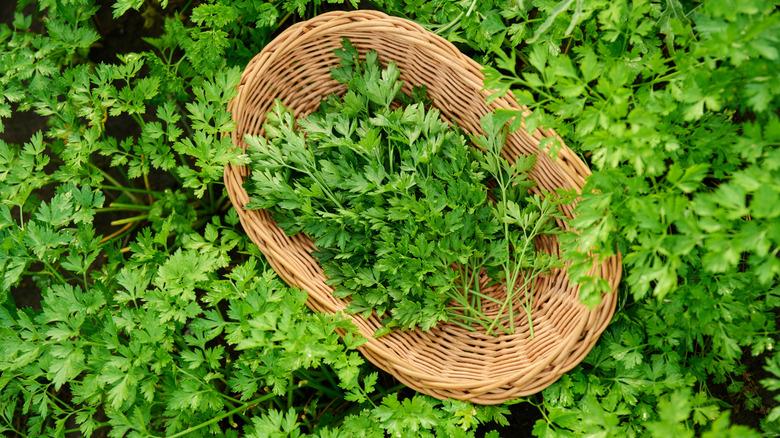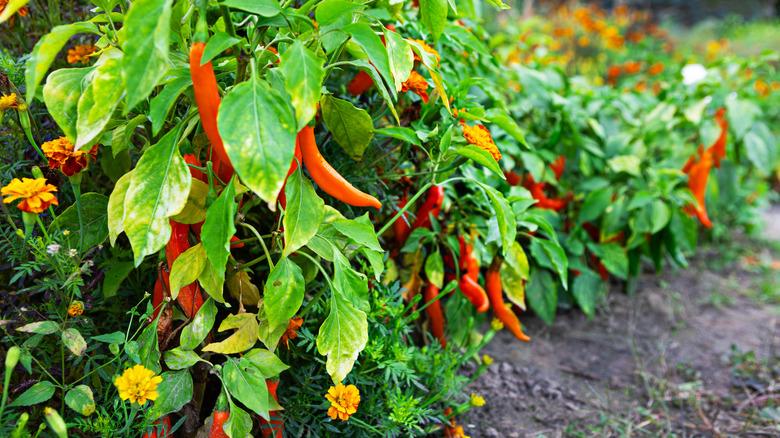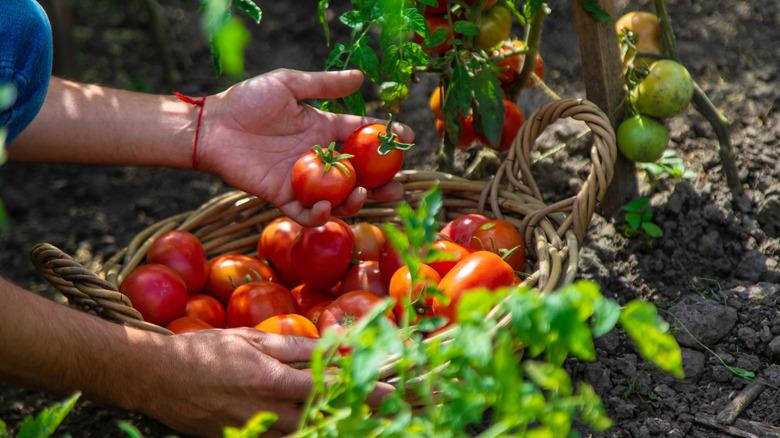12 Easy-To-Grow Basil Companions That Will Make Your Garden Thrive
Like humans, plants often do well when they have reliable companions who complement their lifestyle but don't invade their space. They may have similar needs but know when to leave each other alone. They don't bring toxic companions into each others' lives. Basil's companions share the same sunshine but don't throw shade on each other. Their roots may cross paths, but they don't steal each others' food or poison each others' drinks. Growing basil together with some helpmates can even be mutually beneficial, helping both plants thrive in your garden.
Basil (Ocimum basilicum) is a warm-weather herb that needs plenty of sunshine, well-draining soil rich in organic matter, and is usually grown as an annual in the United States, though it is a perennial in USDA hardiness zones 10 and 11. The plant is especially sensitive to cold snaps, so you can plant it in pots that you can cover or bring indoors on cold nights — but you'll still want to think about the plants you pair it with when it's outside during the day. Here are some excellent ideas for companion plants to pair with your basil.
Apples
Basil helps attract the parasites that attack the codling moth, which produces the "apple worm" that people might encounter when they bite into an infected apple (Malus spp.). Basil also attracts spiders and lacewings that feed on aphids. Growing apples is easy, as they are hardy in zones 3 to 9 (and some varieties can tolerate even more drastic cold). They are easy to grow, though you likely need two apple trees to fertilize each other and produce fruit. Plant basil around the base of your apple tree so that its volatile compounds attract beneficial insects.
Asparagus
Asparagus (Asparagus officinalis) and basil are mutually beneficial. Aphids can attack both asparagus and basil, but both plants attract ladybugs that feast on aphids. Basil's strong smell can also help repel the asparagus beetle, which can cause your asparagus plants to turn brown and wilt as the beetles feed. Plant asparagus near your basil in full sun in moist, well-draining soil that is pH neutral and rich in organic material. Hardy in zones 2 through 8 or 9 (it may struggle without a period of winter dormancy), asparagus is a perennial that reproduces through its roots (rhizomes) and sends up edible shoots in early spring.
Borage
Borage (Borago officinalis) is an annual herb hardy in zones 2 to 11 that will self-sow in your garden, returning in subsequent years. Its flowers are attractive to bees, butterflies, and other pollinators, which can be beneficial if your desire is to let your basil bloom and produce seeds. But borage also attracts beneficial insects that will help keep your basil pest-free. Like basil, borage does best in a sunny spot in well-draining soil rich in organic matter.
Broccoli and other brassicas
Brassicas (Brassica spp.) include the many relatives within the cabbage family (including bok choy, broccoli, Brussels sprouts, cabbage, cauliflower, kale, and mustard). They all attract aphids, while basil will repel them. Brassicas are annuals that do best in zones 6 to 9, requiring full sun and rich, well-draining soil. Most common brassicas are cool-weather annuals, while basil doesn't like the cold, so don't plant your basil alongside your brassicas until all danger of frost has passed.
Chamomile
Chamomile (Chamaemelum nobile) contains oils that act to control many of the same pests that basil controls, including aphids, but those oils also have strong antibacterial properties that might protect basil from diseases such as bacterial leaf spot and basil shoot blight. It is typically hardy in zones 4 to 9, and chamomile should be planted in full sun or part shade in well-draining soil. Its flowers are often harvested, dried, and made into tea.
Garlic
A member of the onion family, garlic (Allium sativum) can repel Japanese beetles, squirrels, rabbits, slugs, and snails that might nibble on your basil. Garlic is hardy in zones 4 to 9. It takes garlic around eight months to grow and mature. Like many other bulbs it should be planted in the fall before the ground freezes. Plant your garlic in plant in loose, well-draining soil in full sun.
Green Beans
Basil's aromatic oils help repel spider mites, which along with aphids are a bane to common beans (Phaseolus vulgaris) and their cultivars, including green beans, string beans, and French beans. Basil also attracts wasps that control the stink bugs that feast on green beans. Like basil, these beans prefer full sun and rich, well-draining soil. An annual, green beans can be grown as annuals in zones 2 to 11, as long as the last frost has come and gone. Whether grown as a bush or as a vine, give them room to spread out, and don't let the mature plants shade out your basil.
Lettuce
Basil can repel the aphids that are often attracted to lettuce (Lactuca sativa). Many also consider the flavor of lettuce to be improved by planting basil as a companion (though this is not scientifically proven). Lettuce returns the favor: As its leaves spread out, they help create a ground cover that prevents weeds from invading your garden, saving room for the spread of your basil instead. It can grow in zones 2 to 11 and should be planted in rich, well-draining soil in full sun to part shade.
Parsley
Parsley (Petroselinum crispum) makes a great companion to basil because of its ability to repel common pests and similar soil and sun needs. Along with basil, parsley can help control asparagus beetles, so plant your parsley, basil, and asparagus among each other. Parsley is biennial hardy in zones 2 to 11 but is usually grown as an annual. Plant it in full sun or light shade in consistently moist, well-draining soil rich in organic material.
Peppers
Basil's essential oils help repel whiteflies as well as the aphids and spider mites that attack pepper plants (Capsicum annum). In turn, the strong oils in peppers (especially hot ones) repel critters that might nibble on basil. Peppers are only hardy as perennials in zones 9 to 11, so like basil they are usually grown as warm-season annuals. Plant peppers in full sun in moist but well-draining soil or a neutral to acidic pH.
Tomatoes
Basil and tomatoes (Solanum lycopersicum) are great companions not only in a fabulous Caprese salad but in your garden as well. Basil produces essential oils that help tomatoes increase their defenses against tomato hornworms, whiteflies, aphids, and some larval pests. Tomatoes can be grown as annuals in zones 2 to 11, planted in full sun in moist but well-draining soil. Whether you grow short and bushy tomatoes or tall, vining ones, plant them behind your garlic so that the tomato plants don't shade out your basil.
